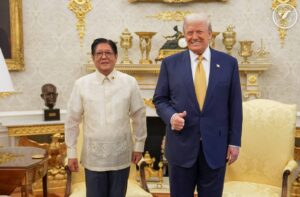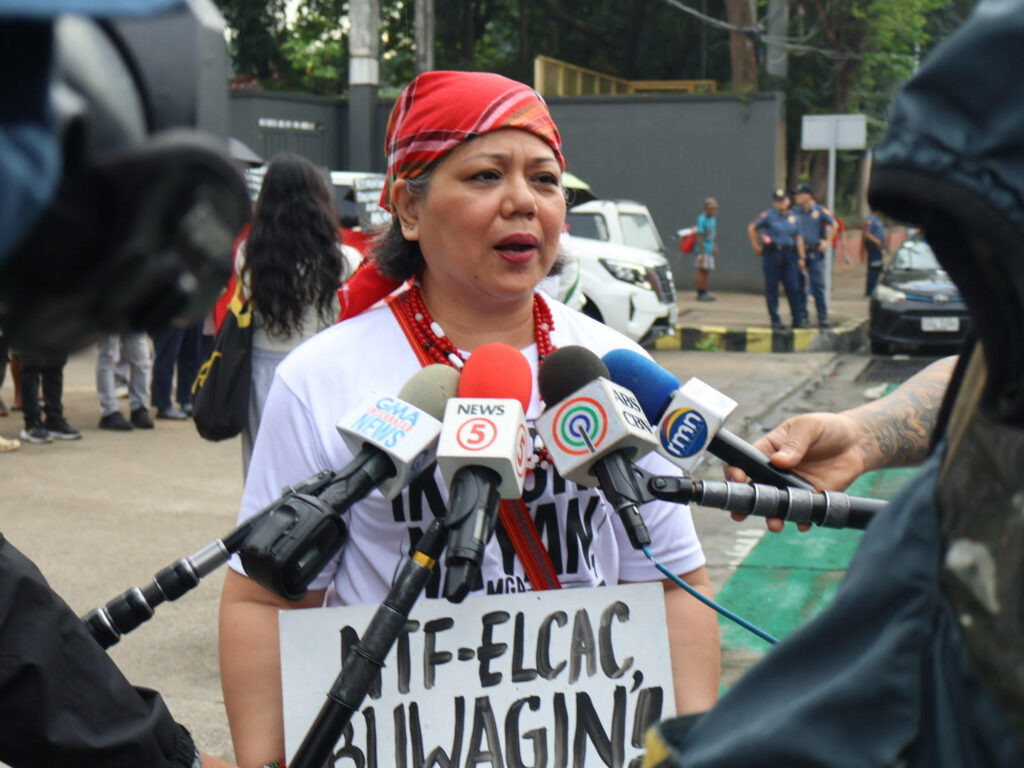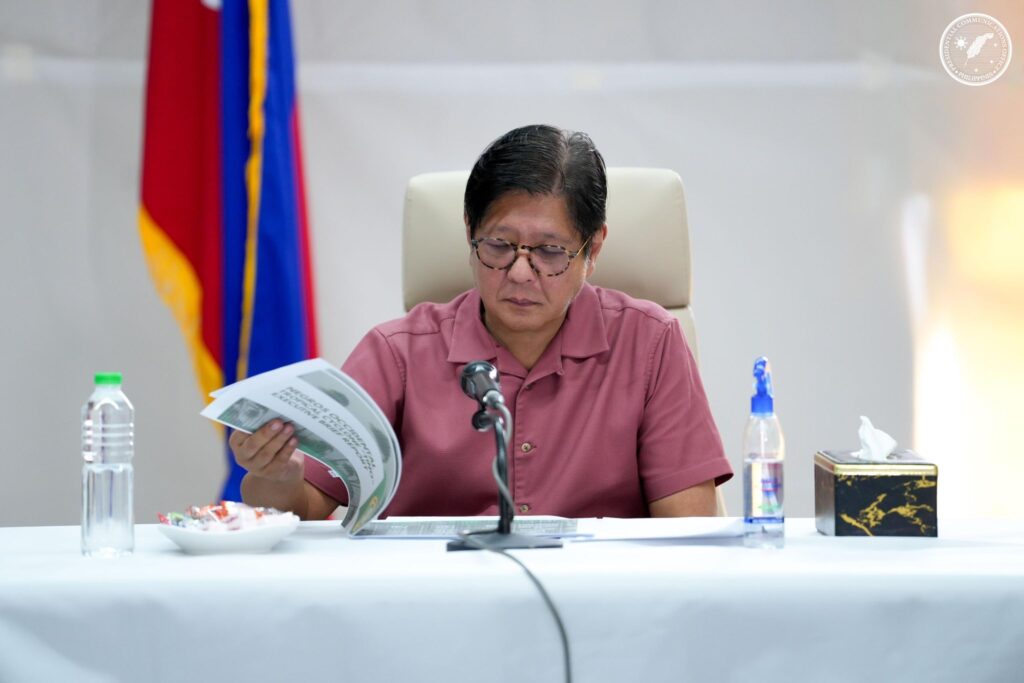While a state of calamity was declared amid severe flooding across the country’s capital, President Ferdinand Marcos Jr. and U.S. President Donald Trump met in a highly publicized exchange that critics say exposed the dangerous depths of U.S.-Philippine military ties and elite self-interest.
The meeting, held during a national emergency, drew sharp rebuke from progressive alliance Bagong Alyansang Makabayan (BAYAN), who denounced it as “a tone-deaf display of admiration between two disgraced dynasties.”
Instead of addressing the humanitarian disaster, the two leaders focused on military partnerships and trade deals that, according to BAYAN, further erode Philippine sovereignty.
During the joint appearance, Marcos Jr. claimed the Philippines is pursuing “independent foreign policy” and “self-reliance,” even as he credited U.S. support for defense modernization and efforts to safeguard regional sovereignty—mentioning UNCLOS, an international treaty that the U.S. itself has not ratified.
Trump’s statements were equally revealing. He boasted that the U.S. “wiped out ISIS in the Philippines” and claimed credit for “untilting” the country’s earlier diplomatic shift toward China.
BAYAN said these comments confirmed longstanding patterns of U.S. interference, which intensified under Obama’s signing of the Enhanced Defense Cooperation Agreement (EDCA) and Marcos Jr.’s more recent bilateral defense arrangements with the Biden administration, including the unveiling of the Luzon Corridor in 2024.
Of particular concern is the announcement of a U.S. ammunition factory to be built in Subic. Trump hailed it as a move to bolster America’s military arsenal, while Marcos Jr. said it would contribute to Philippine military modernization.
BAYAN slammed the project as a “thinly veiled scheme to reinforce the U.S.’s war machine,” warning that Filipino forces may be used in proxy conflicts disguised as counter-terror operations.
Trump’s declaration to “make the Philippines great again” was also met with alarm. BAYAN interpreted it as a signal that Marcos Jr. has fully embraced the role of imperial puppet in U.S. foreign policy designs.
Meantime, trade talks yielded little to celebrate, with a 1% tariff cut announced by Trump and zero-percent concessions offered by Philippine negotiators.
BAYAN characterized the trip as a costly betrayal of national patrimony, economic sovereignty, and public trust.
“News of a mere 1% tariff cut announced by Trump and the zero percent tariff offered by Philippine negotiators shows that the mission has failed and Marcos’ trip is turning into a very expensive sell out of our patrimony, sovereignty, and economic interests,” BAYAN said.
With the country still reeling from disaster, BAYAN urged the Filipino public to demand leadership that prioritizes urgent humanitarian response over foreign flattery.
Meanwhile, Filipino-American activists mobilized across Washington DC this week to protest President Ferdinand Marcos Jr.’s visit, condemning U.S.-Philippines military projects and the administration’s silence on immigrant detentions.
The demonstrations were led by groups including Malaya Movement USA and Migrante USA, who said Marcos Jr.’s foreign engagements neglect the concerns of overseas Filipinos while deepening militarization back home. Of particular alarm is the proposed U.S. ammunition depot in Subic Bay, which activists say could turn the Philippines into a launchpad for geopolitical conflict.
“Such projects only turn the Philippines into the U.S.’ war factory and missile launching pad, and make us a sitting target for hot wars between global superpowers,” said Tabs Elorde of Malaya Movement USA.
Rallies were staged at the historic Blair House during Marcos Jr.’s meeting with U.S. Defense Secretary Pete Hegseth, and again during his visit to the World War II Memorial on Monday. Protesters also gathered outside the U.S. State Department headquarters, where Marcos Jr. met with Secretary Marco Rubio.
Jom Dolor of Migrante USA criticized Marcos Jr.’s refusal to meet with the Filipino-American community, especially amid rising fears of immigration crackdowns. “Fil-Ams are getting disappeared and detained under Trump’s anti-immigrant raids—and Marcos Jr. won’t even hear us out,” Dolor said.
The protests underscore mounting transnational opposition to what activists see as unequal U.S.-Philippines agreements and authoritarian silence in the face of human rights abuses. (ZIA LUNA)




